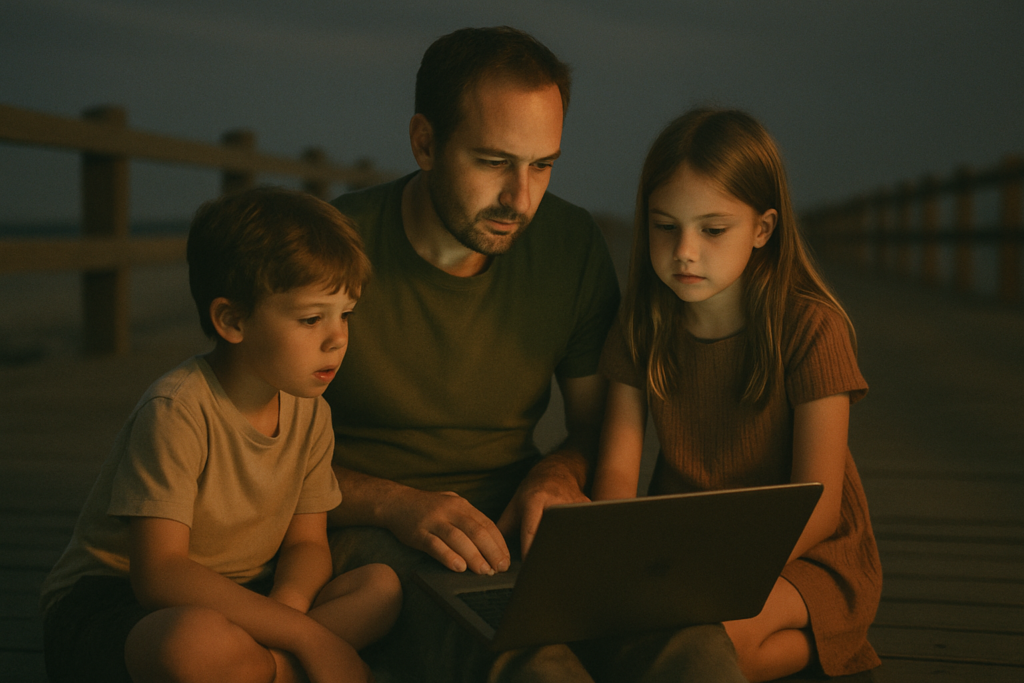As a parent in the digital age, I’ve witnessed firsthand the evolving landscape of screen time and its effects on children’s development. In 2024, the impact of screen time on our little ones has become a focal point of concern and discussion. From educational apps to social media exposure, screens have woven themselves into the fabric of our children’s daily lives, shaping how they learn, interact, and perceive the world around them.
In this ever-changing landscape, understanding the nuanced effects of screen time on children’s development is crucial for parents, educators, and policymakers alike. As we navigate the complexities of raising children in a digital era, it’s essential to explore the latest research, trends, and best practices to ensure our kids thrive in a balanced and healthy environment. Join me as we delve into the realm of screen time and its profound impact on the development of our young ones in 2024.
Understanding Screen Time in 2024
As I delve into the impact of screen time on children’s development in 2024, it’s crucial to first grasp the current landscape of screen time usage and its implications. Let’s unravel the concept further by exploring the definition of screen time and the evolving patterns in its usage.
The Definition of Screen Time
When discussing screen time, we refer to the total time spent engaging with digital screens, such as smartphones, tablets, computers, and televisions. In today’s digital age, children are exposed to screens from an early age, altering how they interact with information and the world around them. Understanding the definition of screen time allows us to gauge its significance in children’s daily routines and its potential effects on their development.
Changes in Screen Usage Patterns
In 2024, we witness notable shifts in how children utilize screens compared to previous years. With advancements in technology and the integration of screens into various aspects of life, children’s screen time patterns have become more diverse and integrated. As digital devices offer new forms of entertainment, communication, and education, children’s screen time usage has evolved to encompass a wider array of activities. These changing screen usage patterns necessitate a deeper understanding of the implications on children’s development and well-being in the digital landscape of 2024.
Psychological Effects of Screen Time
As I explore the impact of screen time on children in 2024, it’s essential to consider the psychological effects that prolonged exposure to digital devices can have on their development. Let’s delve deeper into two significant aspects: attention and concentration issues and the effects on social skills.
Attention and Concentration Issues
When it comes to attention and concentration, excessive screen time can lead to challenges for children. Research suggests that prolonged exposure to screens, especially in the form of fast-paced interactive media, can negatively affect a child’s ability to focus. The constant stimulation from screens can impede their capacity to concentrate on tasks that require sustained attention, potentially impacting their academic performance and overall cognitive development.
Effects on Social Skills
Screen time can also influence the development of social skills in children. Excessive use of digital devices may limit face-to-face interactions and reduce opportunities for practicing essential social skills such as verbal communication, non-verbal cues interpretation, and empathy. Children who spend prolonged hours in front of screens may find it challenging to engage in real-world social situations, leading to potential difficulties in forming meaningful relationships and developing crucial interpersonal abilities.
In examining the psychological effects of screen time on children, it’s evident that monitoring and regulating screen usage play a pivotal role in supporting healthy development and well-being in the digital age.
Physical Health and Screen Time
Screen time has a significant impact on children’s physical health in various aspects. Here, I’ll discuss how screen time influences sleep patterns and raises concerns about sedentary lifestyles and obesity.
- Impact on Sleep Patterns
Excessive screen time before bed can disrupt children’s sleep patterns. The blue light emitted by screens interferes with the production of melatonin, a hormone that regulates sleep. As a result, children may experience difficulty falling asleep and have poorer sleep quality, leading to fatigue and irritability during the day. - Sedentary Lifestyle and Obesity Concerns
Extended screen time often correlates with a sedentary lifestyle, reducing physical activity levels in children. Sitting for prolonged periods while engaging with screens not only limits movement but also contributes to an increased risk of obesity. Lower physical activity combined with excessive screen time can lead to weight gain, affecting children’s overall health and well-being.
Educational Implications of Screen Time
Screen time plays a significant role in shaping children’s development, with both positive and negative effects on their academic growth and overall well-being.
Enhancing Learning Through Educational Apps
Using educational apps can be a powerful tool to supplement traditional learning methods. Such apps offer interactive content that can enhance children’s engagement and understanding of various subjects. By incorporating educational apps into their screen time, children can benefit from a more personalized and adaptive learning experience that caters to their individual needs.
Risks of Overdependence on Digital Platforms
However, overdependence on digital platforms for learning can pose risks to children’s overall development. Relying too heavily on screens for educational purposes may lead to decreased social interaction, limited physical activity, and potential issues with attention span and cognitive development. It is crucial to strike a balance between screen time for educational purposes and other essential activities to ensure a holistic approach to children’s development.
Parental Guidelines and Recommendations
As a parent, it’s crucial to establish clear guidelines and recommendations regarding screen time to support your child’s healthy development in the digital age. Here are some effective strategies to consider:
Setting Screen Time Limits
I recommend setting specific time limits for your child’s screen time based on their age and developmental stage. For example, limiting screen time to one to two hours a day for school-aged children can help prevent the negative impact of excessive screen exposure on their well-being.
Encouraging Balanced Activities
It’s essential to encourage a variety of activities beyond screen time to promote a well-rounded development for your child. Encourage outdoor play, physical exercises, reading, creative hobbies, and social interactions to ensure a balanced lifestyle that nurtures both physical and mental health. Balancing screen time with these diverse activities can enhance your child’s overall well-being and reduce the risks associated with excessive screen use.
ABOUT THE AUTHOR:




